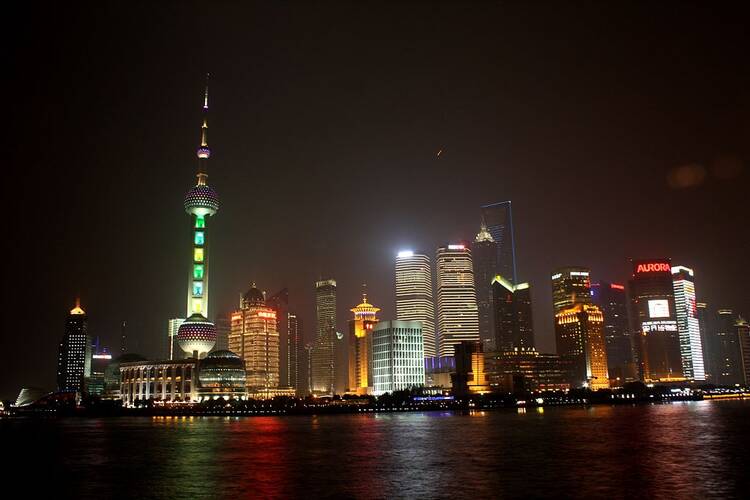By lunchtime Friday U.S. markets had steadied, but investors both in the United States and overseas were still shaking from a week destabilized first by sharp exchanges between Iran and Saudi Arabia over an executed Shiite cleric and then by major plummets on China’s stock markets that led to trading being halted twice.
In August, the Shanghai Stock Market’s Shanghai Composite Index suffered losses of over 8 percent and then 7 percent on consecutive days. The government intervened by providing billions to local brokerage houses to buy shares, but a devaluation of China’s currency followed by more than 3 percent, and a new “circuit breaker”—a maximum loss floor that halts trading—was implemented. That circuit breaker was tripped twice this week, on Wednesday and Thursday, respectively. Both the Dow Jones Industrial Average and the Nasdaq Composite suffered triple-digit losses as a result on Thursday.
Perceiving that the new policy was doing more harm then good as panicked investors rushed the markets at opening, the China Securities Regulatory Commission suspended the circuit break on Friday, and Shanghai closed up almost 2 percent on the day, without approaching the earlier 7 percent floor.
Chinese markets are crowded with individual investors who treat them more like gambling operations than opportunities for long-term investment. That's part of the reason market spikes and drops in China can be quite sharp. Unlike in the United States, individual investment in China’s two stock markets—the other is the Shenzhen Stock Exchange—is neither widespread nor as long-term a proposition with individual investors. That suggests the immediate impact on the general public in China of the week's losses may not be great. However, the markets’ continued losses are a sign that China’s economy continues to weaken and that plans to use a mix of interventionist tactics and currency devaluation to address it are not proving reassuring.
It’s the latter of those two strategies that seems to be maintaining the market’s volatility. On Thursday, Reuters, citing People’s Bank of China—China’s central bank—sources, reported that China’s government may allow the yuan to be devalued “quickly and sharply” by 10-15 percent. That may only succeed in adding the phrase “currency manipulation” back into the U.S. election campaign. It will likely be an uneasy weekend for investors in China.
Steven Schwankert, author of Poseidon: China’s Secret Salvage of Britain’s Lost Submarine (Hong Kong University Press), is America’s Beijing correspondent. Twitter: @greatwriteshark.








